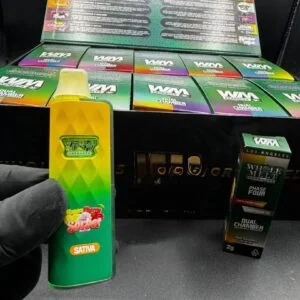Winning a BSEA Case: Key Strategies for Special Education Disputes
- Crystal Webster
- Feb 26, 2025
- 3 min read
Are you struggling with a special education dispute and considering filing a claim with the Bureau of Special Education Appeals (BSEA)? If so, you're not alone. Many parents and caregivers find themselves in similar situations, navigating through the complex world of special education law to ensure that their child receives the appropriate services and support. In this article, we will explore key strategies for winning a BSEA case and provide you with valuable insights to help you advocate for your child effectively.
Understanding the BSEA Process
Before diving into the strategies for winning a BSEA case, it's essential to understand the process itself. The Bureau of Special Education Appeals is an impartial state agency responsible for resolving disputes related to the identification, evaluation, programming, and placement of students with disabilities in Massachusetts. The BSEA process typically involves mediation, resolution sessions, and ultimately, a due process hearing if necessary. It's crucial to familiarize yourself with the rules and procedures governing the BSEA process to navigate it successfully.
Reviewing Fair Hearing Decisions
One valuable resource for understanding the BSEA process is to review Fair Hearing Decisions issued by the bureau. These decisions provide insight into how similar cases have been decided in the past and can help you strategize your own case effectively. By studying the reasoning and outcomes of previous fair hearing decisions, you can identify trends, common pitfalls to avoid, and successful strategies employed by other parties. This knowledge will empower you to make informed decisions and strengthen your argument during the BSEA proceedings.
Crafting a Strong Case
To increase your chances of winning a BSEA case, it's essential to craft a strong and compelling argument supported by relevant evidence. Start by thoroughly documenting your child's educational history, including evaluations, Individualized Education Programs (IEPs), progress reports, and any correspondence with school officials. Identify specific areas where the school district has failed to provide appropriate services or accommodations, and gather evidence to support your claims. Having a well-documented case will bolster your credibility and increase your chances of success at the BSEA hearing.
Strategies for Success
Now that you have a solid understanding of the BSEA process and have crafted a strong case, let's explore key strategies for winning a special education dispute:
Collaborate with School Personnel
Advocate for Your Child
As a parent or caregiver, you are your child's most effective advocate. Be proactive in seeking the services and accommodations your child needs to thrive in the educational setting. Clearly articulate your child's unique needs and challenges, communicate your expectations to school officials, and persistently follow up on any agreements or promises made. Your advocacy can make a significant difference in ensuring that your child receives the appropriate support and services.
Seek Legal Counsel
If you're facing a particularly complex or contentious special education dispute, consider seeking legal representation to guide you through the BSEA process. An experienced special education attorney can provide valuable advice, support, and representation during mediation, resolution sessions, and due process hearings. They can also help you navigate the intricacies of special education law, advocate effectively for your child, and increase your chances of success at the BSEA hearing.
Conclusion
Winning a BSEA case requires meticulous preparation, strategic planning, and effective advocacy on behalf of your child. By understanding the BSEA process, reviewing fair hearing decisions, crafting a strong case, and implementing key strategies, you can increase your chances of success and ensure that your child receives the appropriate services and support they need to thrive in the educational setting. Remember, you are your child's most powerful advocate, and with perseverance and determination, you can navigate through the complexities of special education law and achieve a positive outcome for your child's future.


Comments